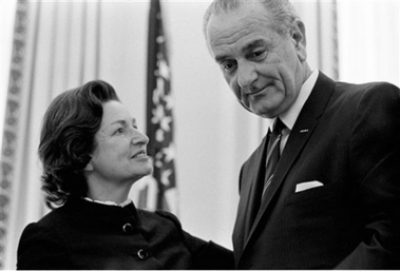5 Facts About IRS Law Restricting Political Sermons
2. The Johnson Amendment Origins

As its popular name implies, the Johnson Amendment was introduced by then Democratic Senator Lyndon Baines Johnson of Texas in 1954.
Keith Blair, assistant professor of Law and Head of Tax Clinic, University of Baltimore School of Law noted in a journal article from 2009 that Sen. Johnson introduced the measure in response to a nonprofit distributing campaign material on behalf of a primary challenger named Dudley Dougherty.
"Senator Johnson became aware of the material, and asked his counsel, Gerald Siegel, for an opinion on its legality," wrote Blair.
"Siegel informed Johnson that while the materials violated Texas law, they did not violate federal law as there was no prohibition against directly or indirectly attempting to influence a political campaign."
This led Johnson to introduce an amendment to Section 501(c)(3) of the Internal Revenue Code, which passed Congress in 1954.
In a paper titled "A History of the Tax-Exempt Sector: An SOI Perspective," the Internal Revenue Service stated that the Revenue Code of 1954 "introduced a number of changes to the tax-exempt organization tax law."
"Charitable organizations were described under section 501(c)(3) and now included organizations operated for the purpose of 'testing for public safety'," noted the IRS.
"Following passage of the Revenue Code of 1954, charities were not allowed to 'participate in, or intervene in (including the publishing or distributing of statements), a political campaign on behalf of any candidate for public office.'"




























